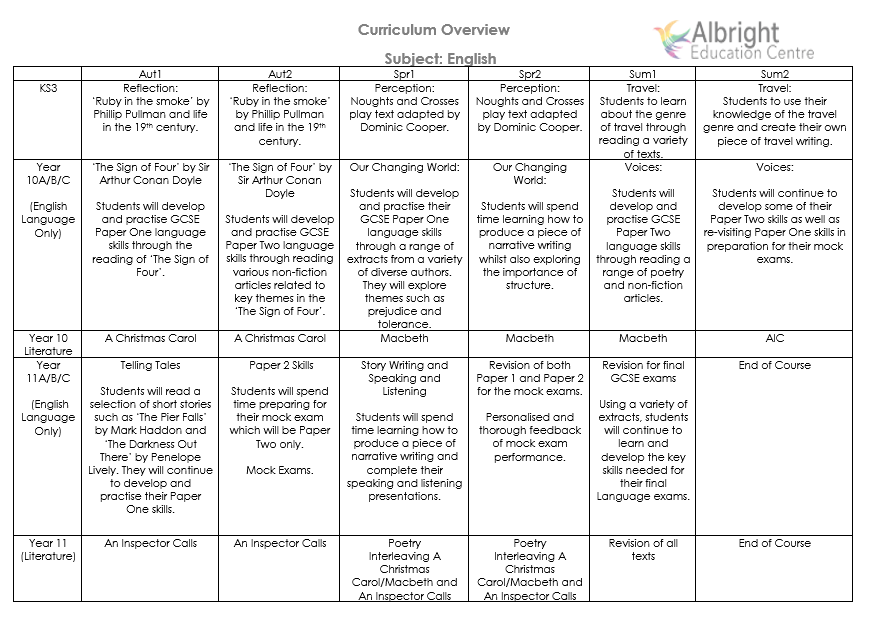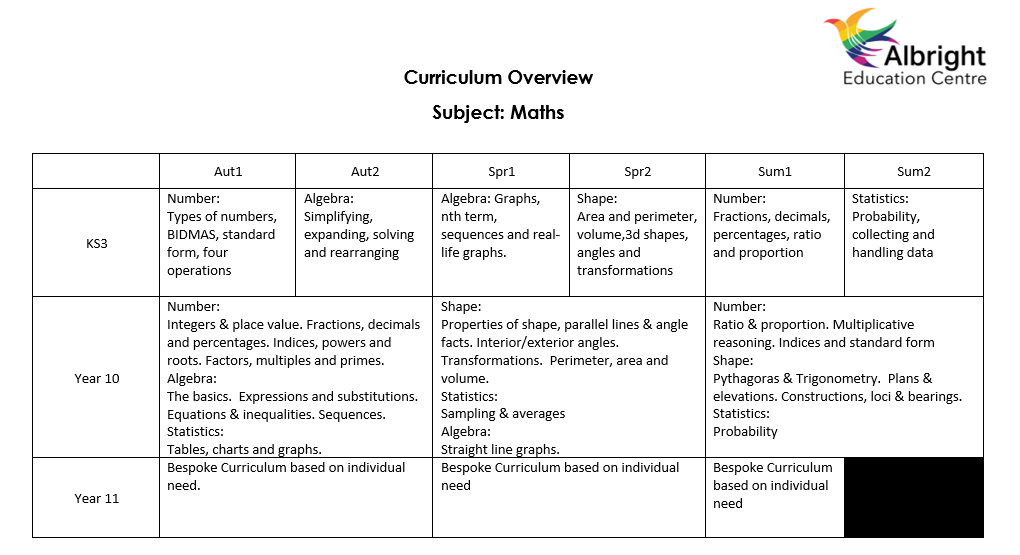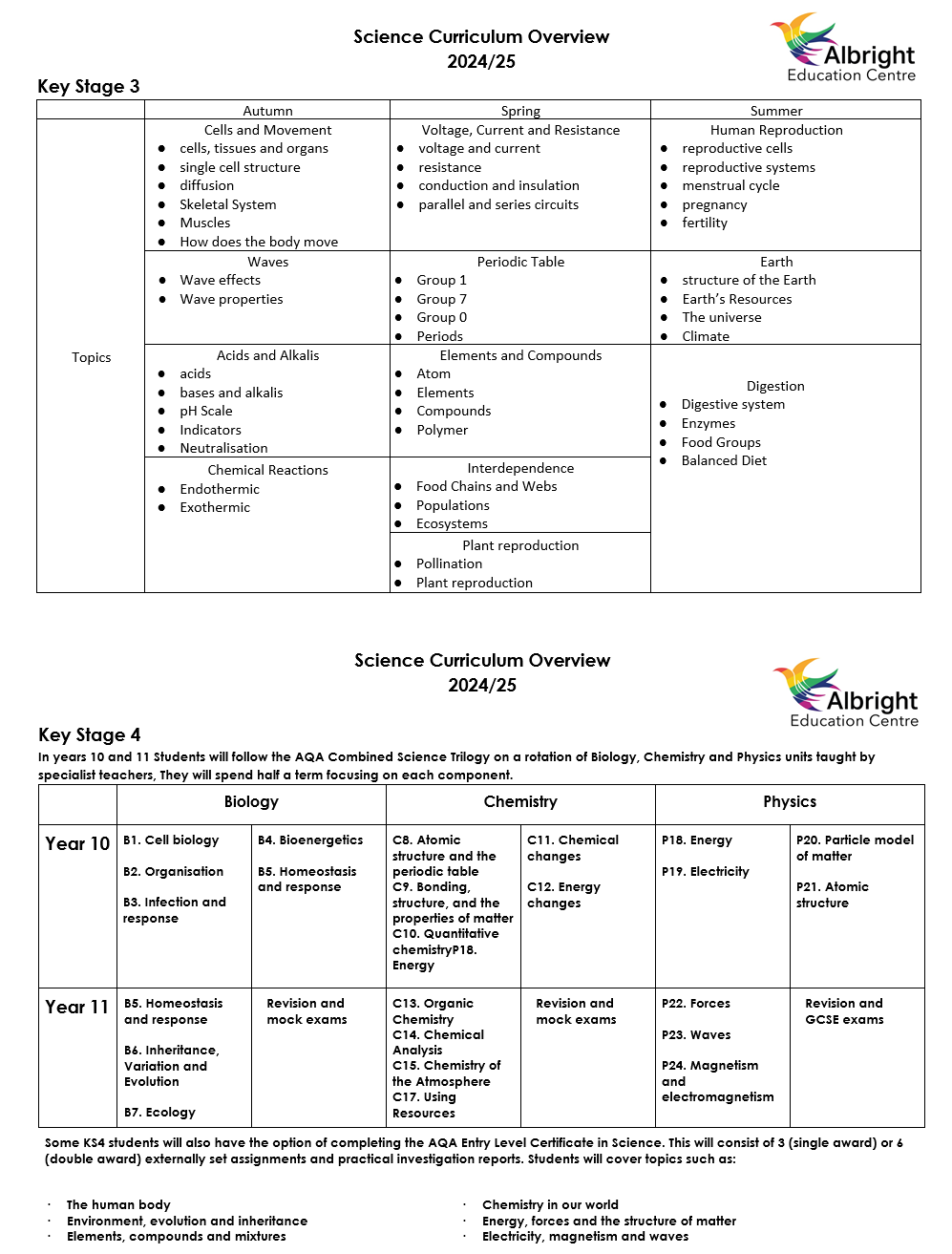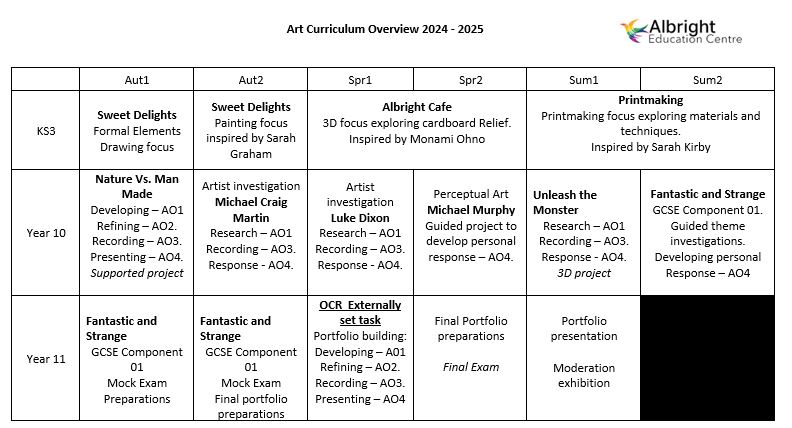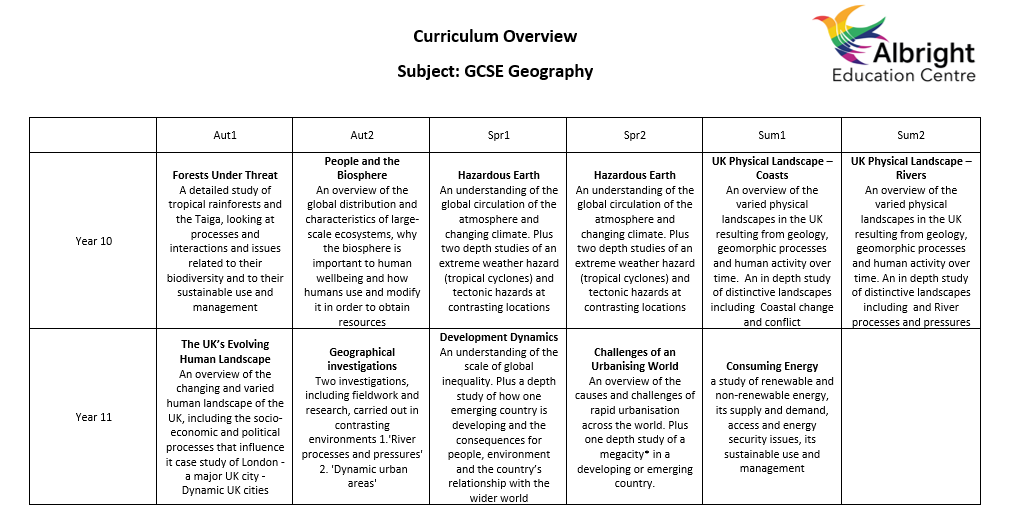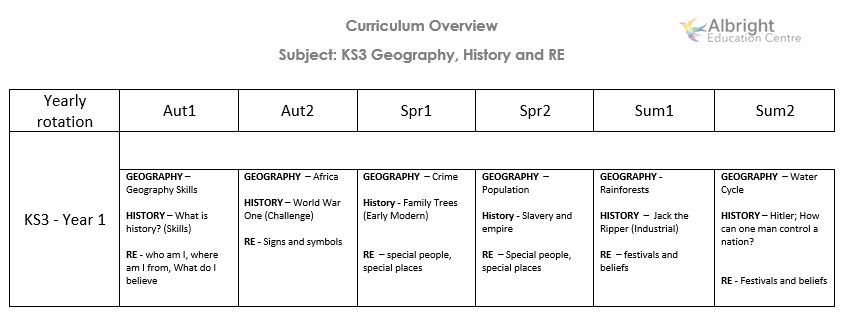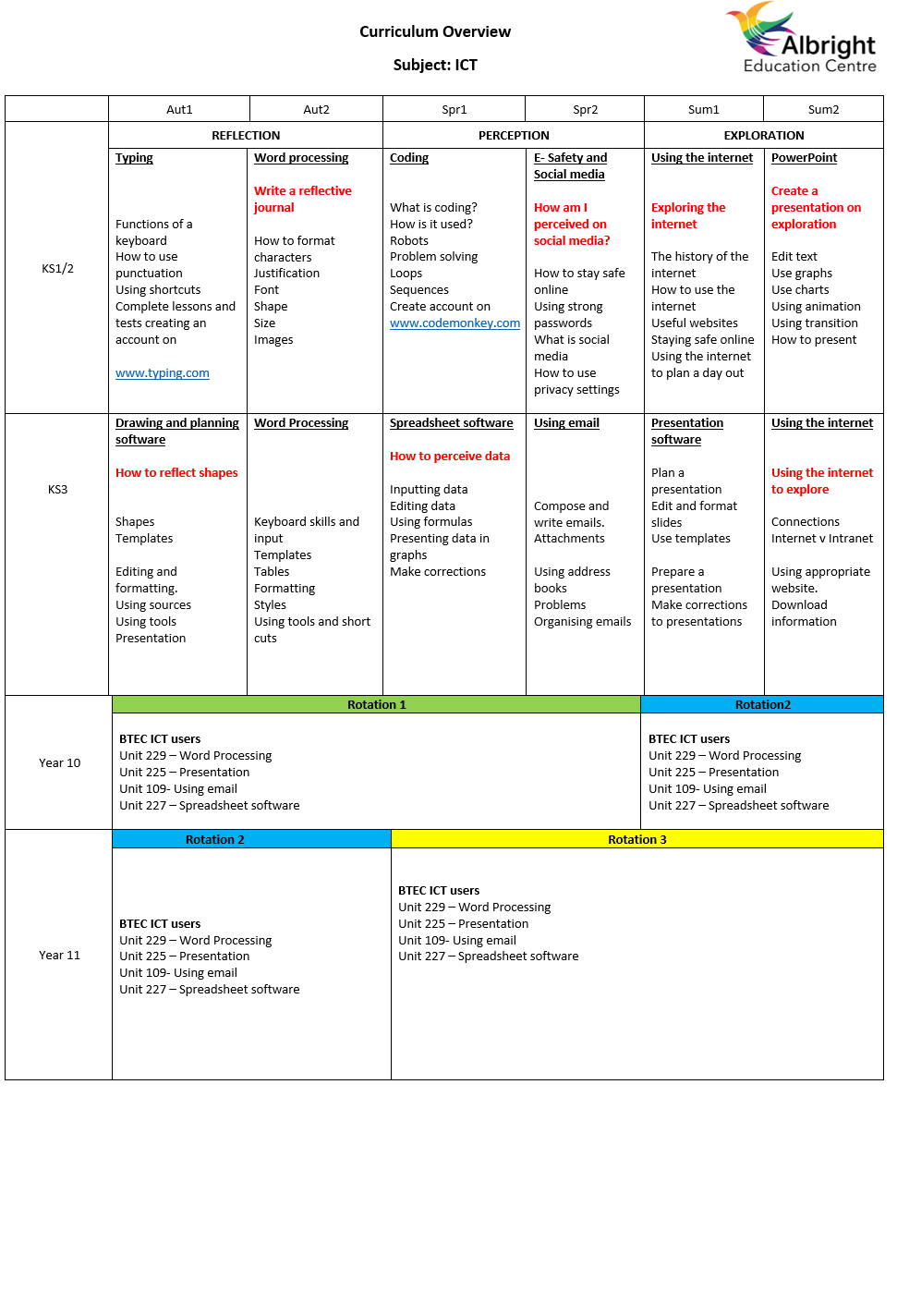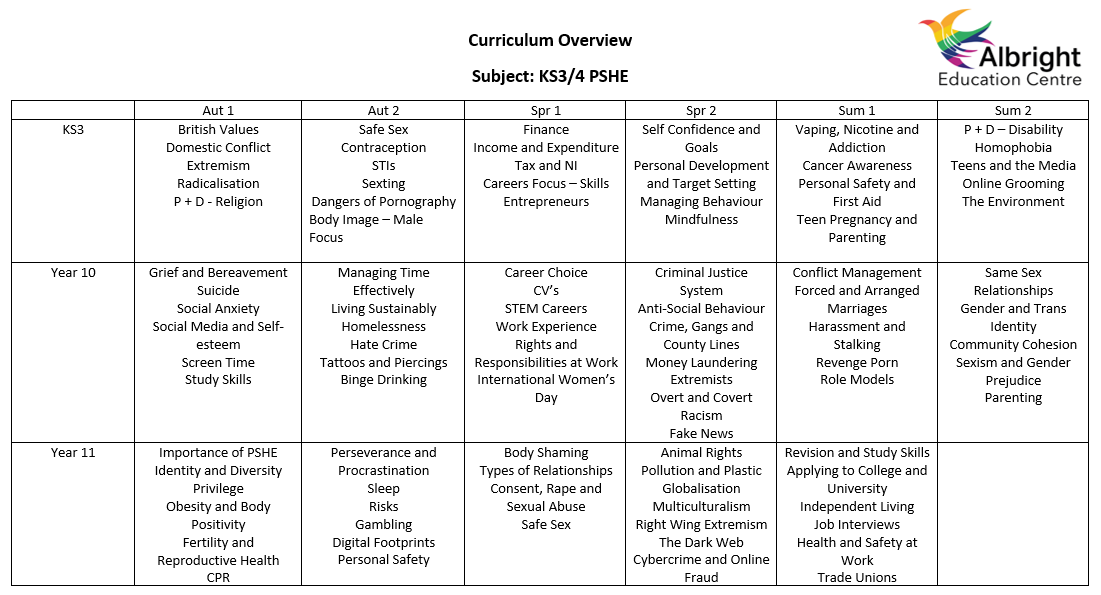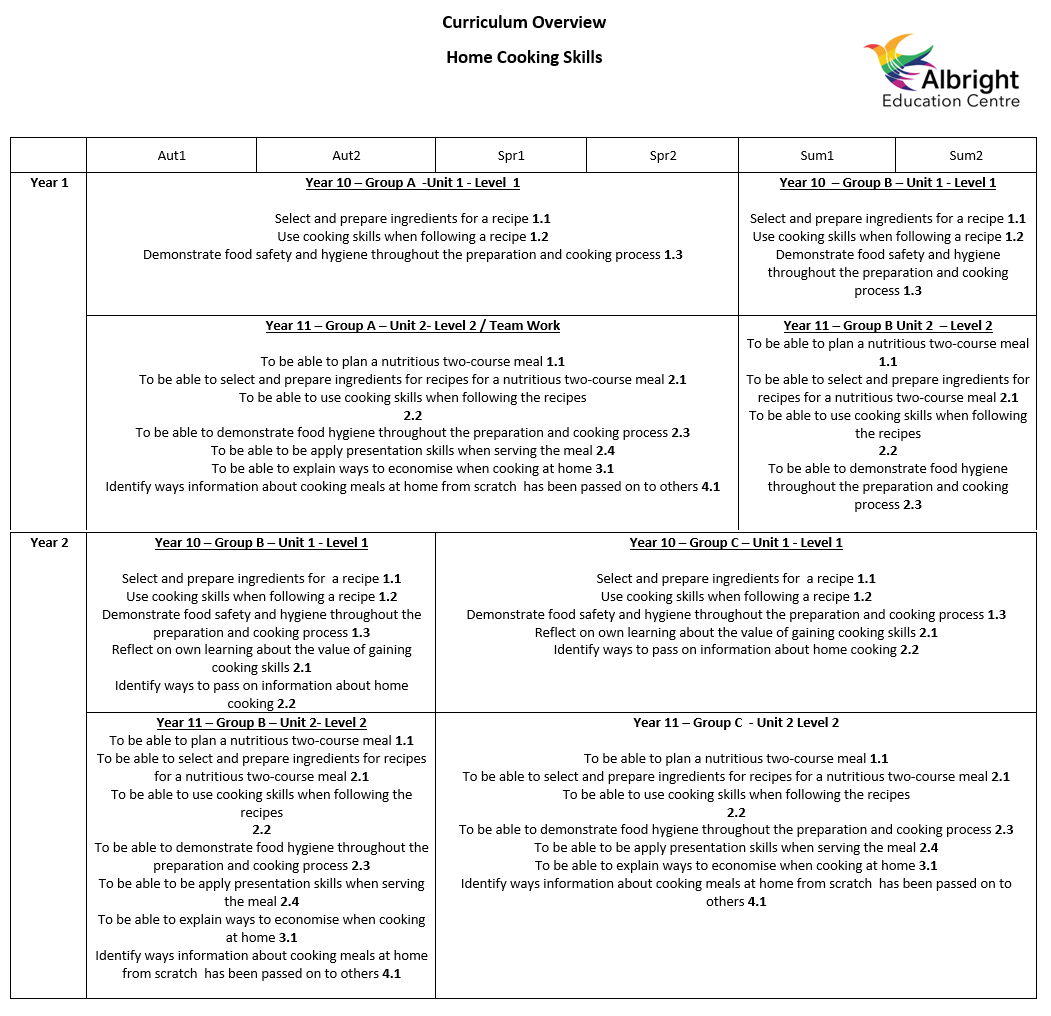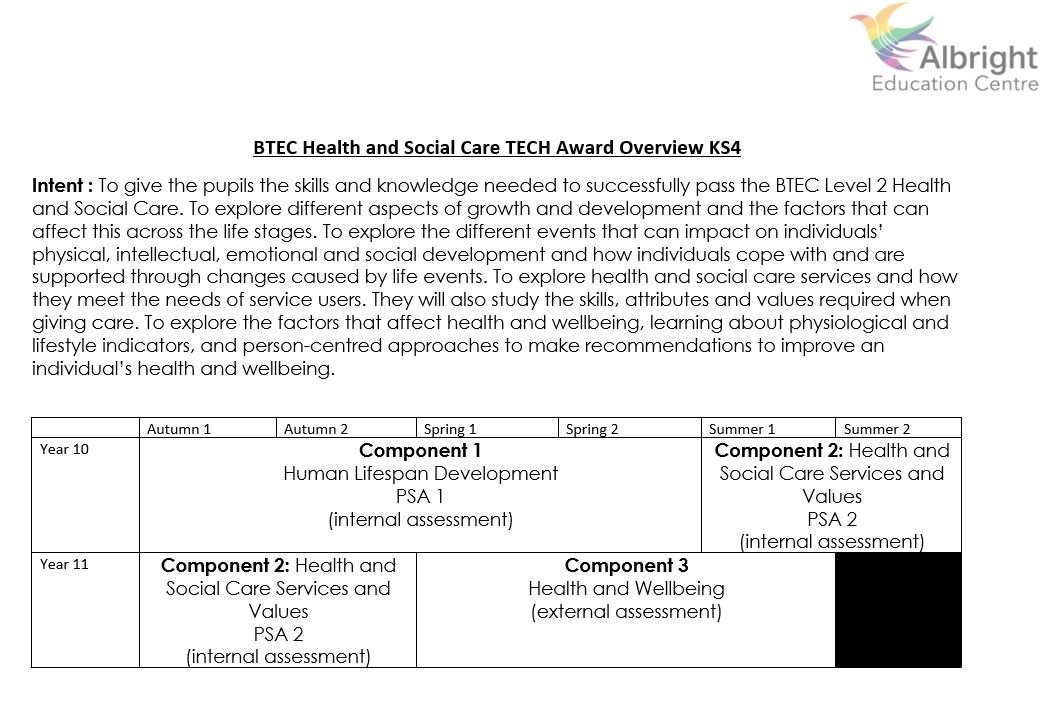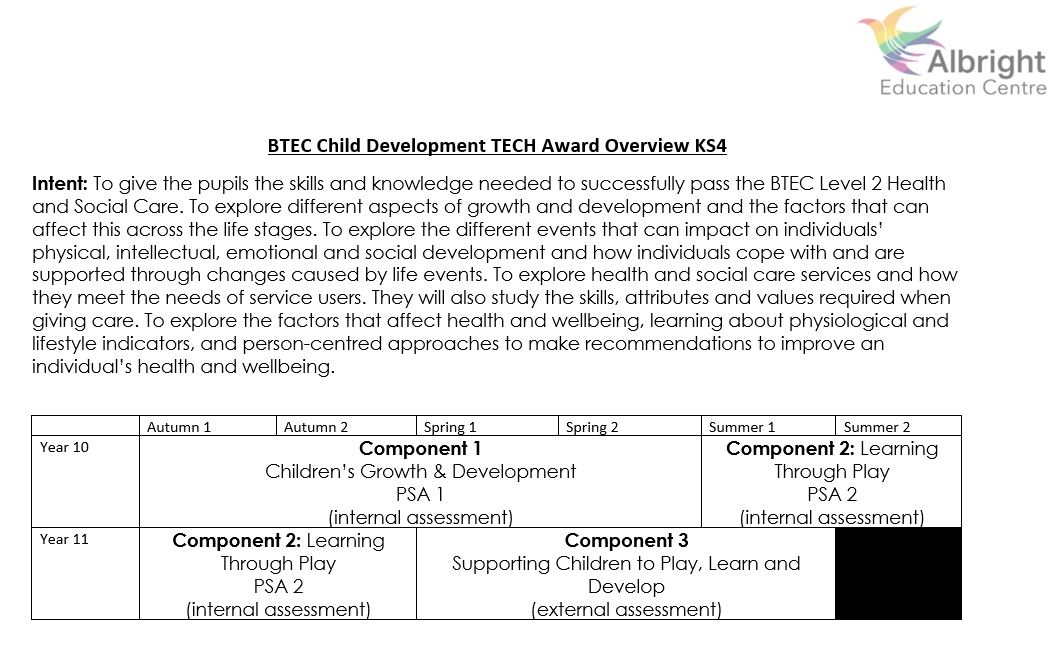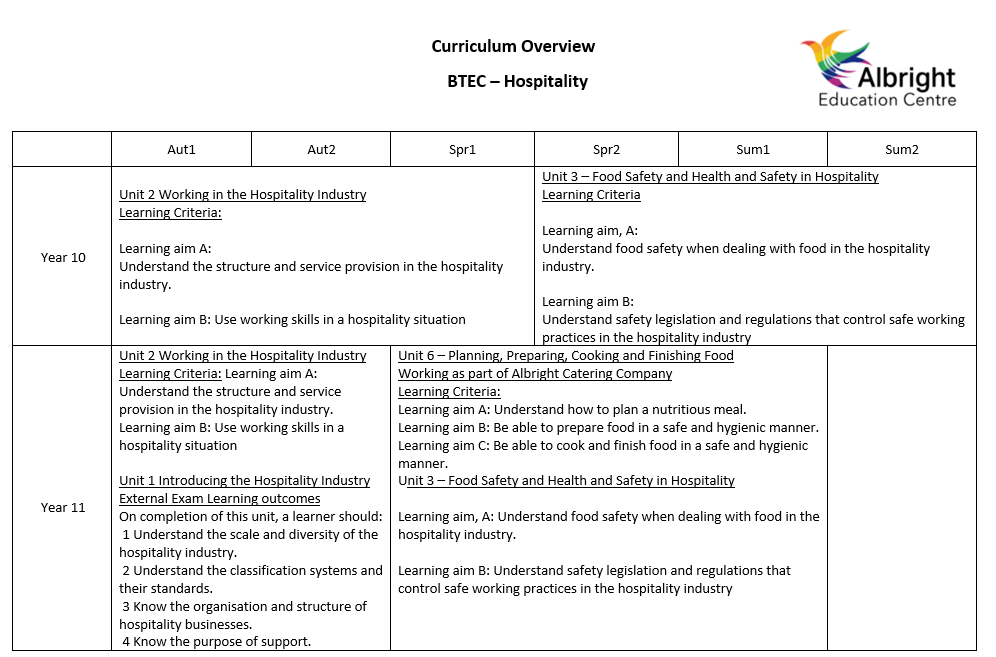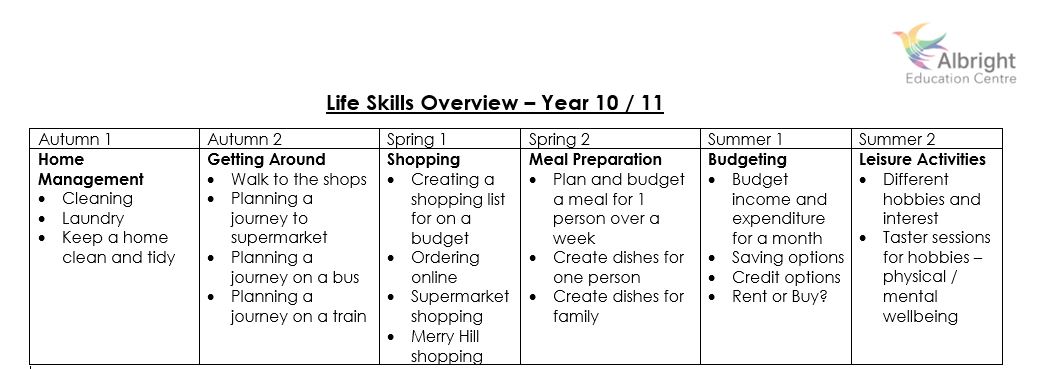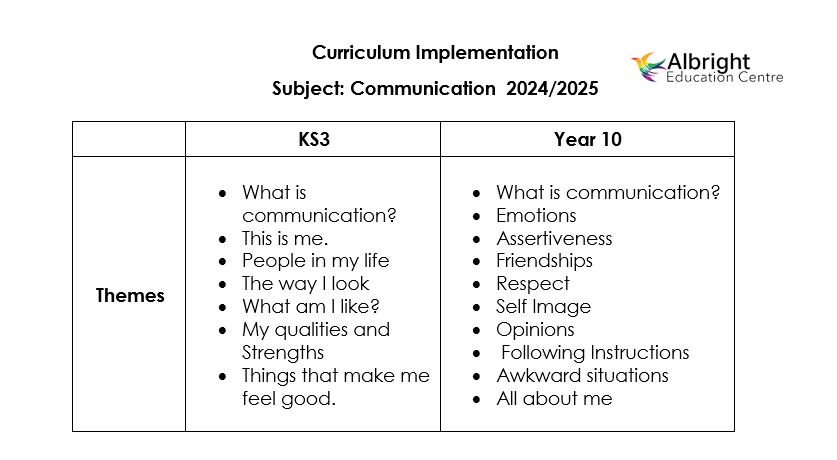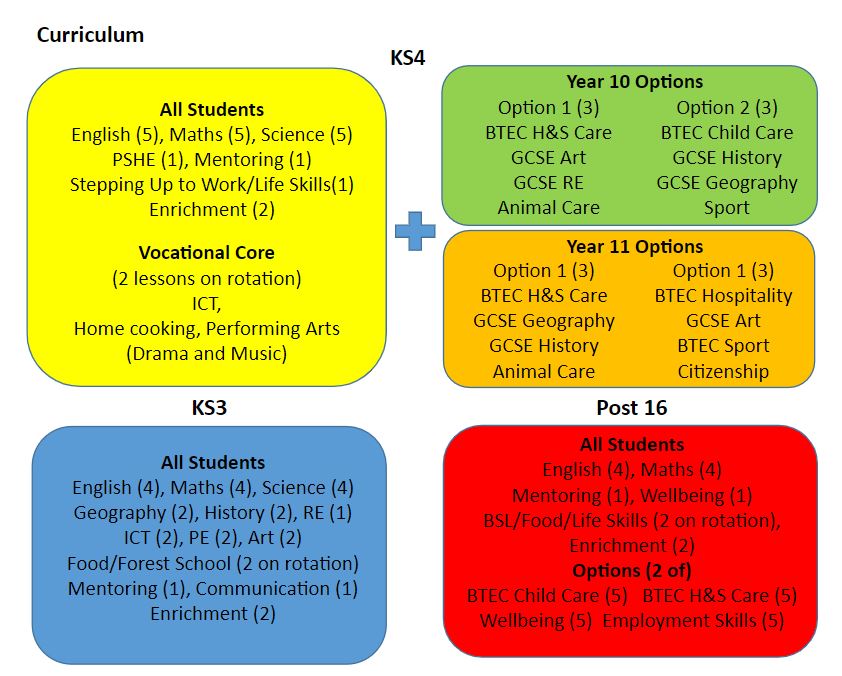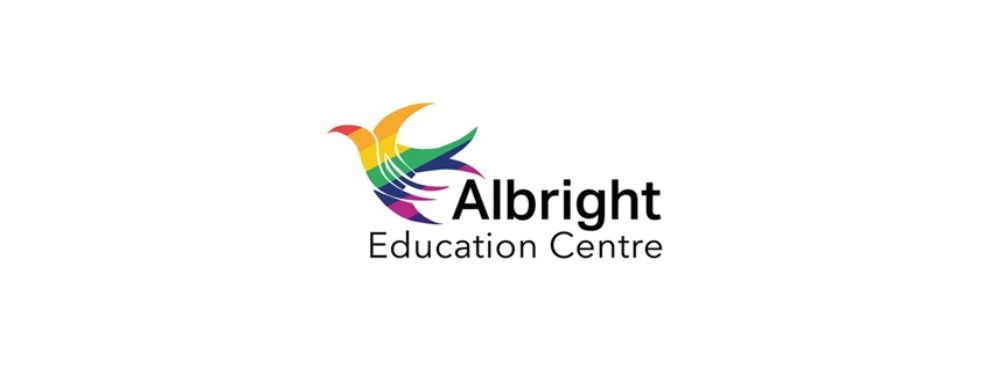
Albright Education Centre
Curriculum Intent
“Developing the right pathway for each individual child, enabling them to flourish and succeed.”
The curriculum at Albright has been developed to ensure all pupils have the opportunity to gain essential skills and knowledge that they need to prepare them for their future success. Albright understands that a pupil’s future can take a path in many different ways from transitioning back to their mainstream, moving to another mainstream school or onto college, alternative providers or employment. Therefore it is vital that the curriculum offers all pupils the ability to develop skills and knowledge that will allow them to succeed in their individual path.
Key Stage 3
Pupils within Year 7, 8 and 9 are spilt into 2 classes depending on a range of baseline assessments. A pupil’s progress is tracked both in relation to SEMH and knowledge and skills acquired to ensure that they grow and flourish to reach their full potential and beyond.
Subjects: English, Maths, Science, ICT, Art, Humanities, Enrichment, PSHE, Mentoring, PE and Food
Key Stage 4
Within Key Stage 4 both years 10 and 11 are split into 3 classes in each year group depending on academic and social emotional need. The curriculum is carefully developed to ensure pupils have the necessary skills and knowledge to be successful in their next chosen pathway. Academic and Vocational subjects are planned within the curriculum in order for pupils to achieve a set of diverse skills and knowledge balanced carefully with the demands of exams and coursework. Within Key Stage 4 pupils can cover the following subjects:
GCSE Subjects : GCSE Maths, GCSE English Language / Literature, GCSE Combined Science, GCSE Film Studies, GCSE Geography, GCSE History, GCSE Art and Design
Vocational Subjects : BTEC First Awards in Hospitality, Sport and Health & Social Care. BTEC Entry Levels in IT Users, Work Skills and Home Cooking Skills. BTEC Introductory Level in Hair and Beauty, Land Studies, Business, Sport and Public Services.
Social Emotional Subjects : PSHE, Mentoring, Enrichment and Next Steps.
“Developing the right pathway for each individual child, enabling them to flourish and succeed.”
Assessment / Monitoring Progress
In all subject areas pupils are monitored to ensure appropriate progress. Assessments are varied so all pupils have the opportunity to demonstrate progress in all topic areas. Timely interventions (at a subject based level) are put into place where appropriate.
Equality / Diversity
Within the Key Stage 3 and 4 curriculum we promote independence and resilience in order for every pupil to achieve their full potential and succeed. At Albright we feel that differentiation is vital in every lesson in order for pupils to make progress in academic and social emotional targets. From the information gained during the Induction it is decided how to best support pupils so they can access the curriculum effectively and have coping mechanisms that enable them to self-regulate their own behaviours. All pupils will have the opportunity to access a broad and balanced curriculum whist achieving the highest expectations set for them.
Albright Academy Curriculum Overview

